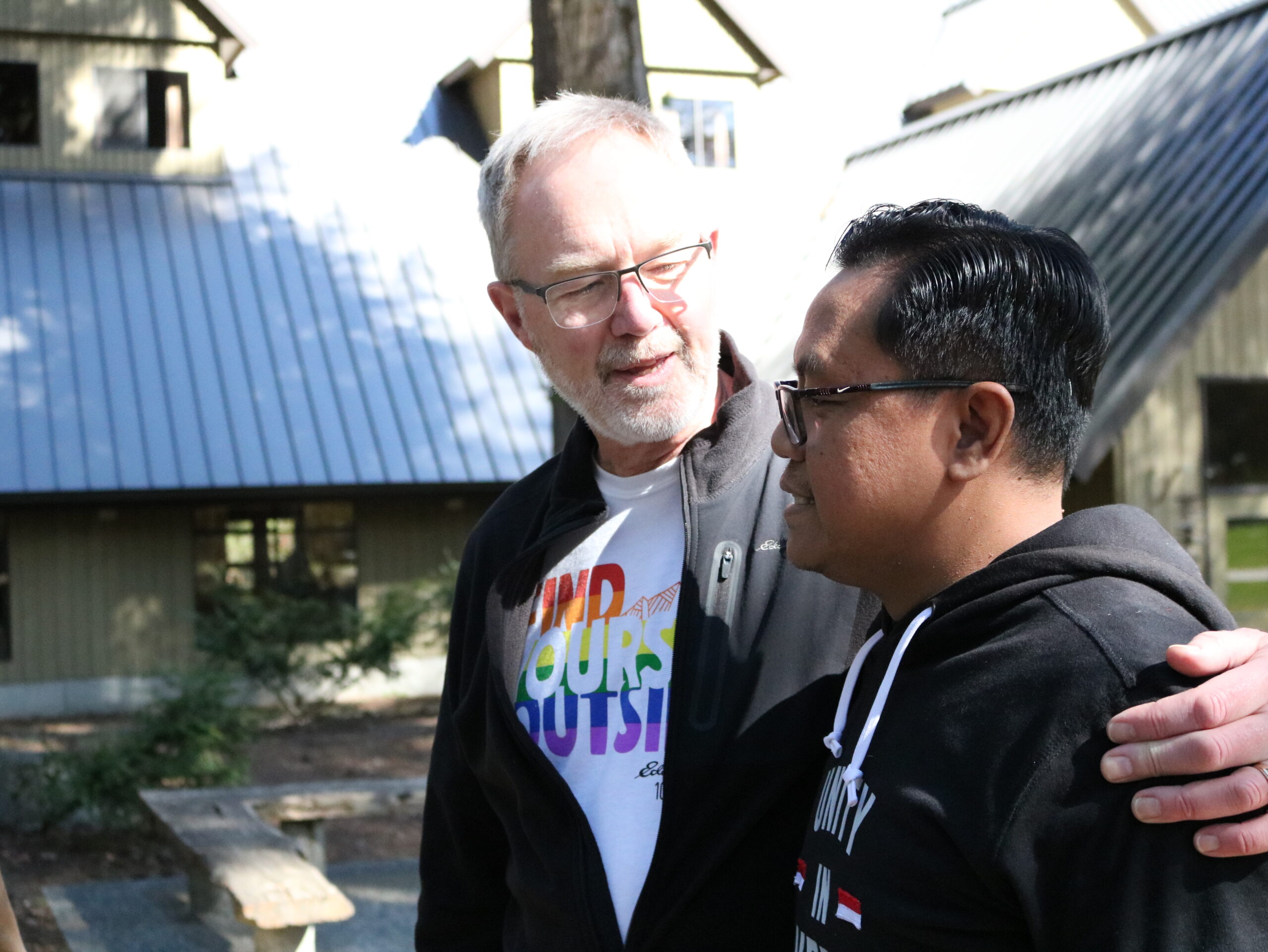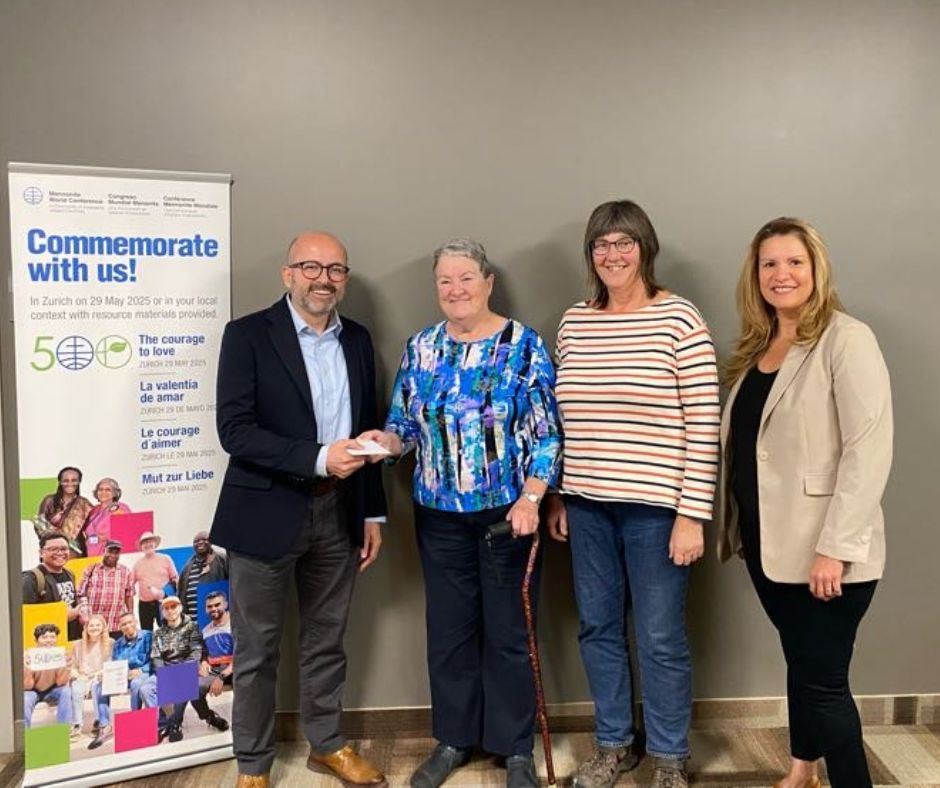-
Tithes and offerings
Anabaptist World Fellowship Sunday 2025 In many cultural contexts, and particularly in Africa, the offering is as important as the sermon, as a meaningful part of worship. The pastor often asks one of the ushers to pray, to bless the givers, and also that those who are not giving may be blessed to give. Often…
-
An act of justice, a gesture of love
Many hands make light work This adage is one we use frequently when we’re doing work together. A core part of our identity as Mennonite World Conference is living out unity, so pooling our efforts to make a positive difference in the world is fundamental. Living out unity is calls on each one of us…
-
“Unless a seed dies” (John 12:24)
“Disperse and connect.” This motto guided Hawkesville Mennonite Church as they closed the congregation’s active ministry and disbursed the assets to support other ministries. Mennonite World Conference was one of the beneficiaries from this congregation in rural Ontario, Canada. “The church’s assets will be used to promote the ongoing mission of the church,” says David…

